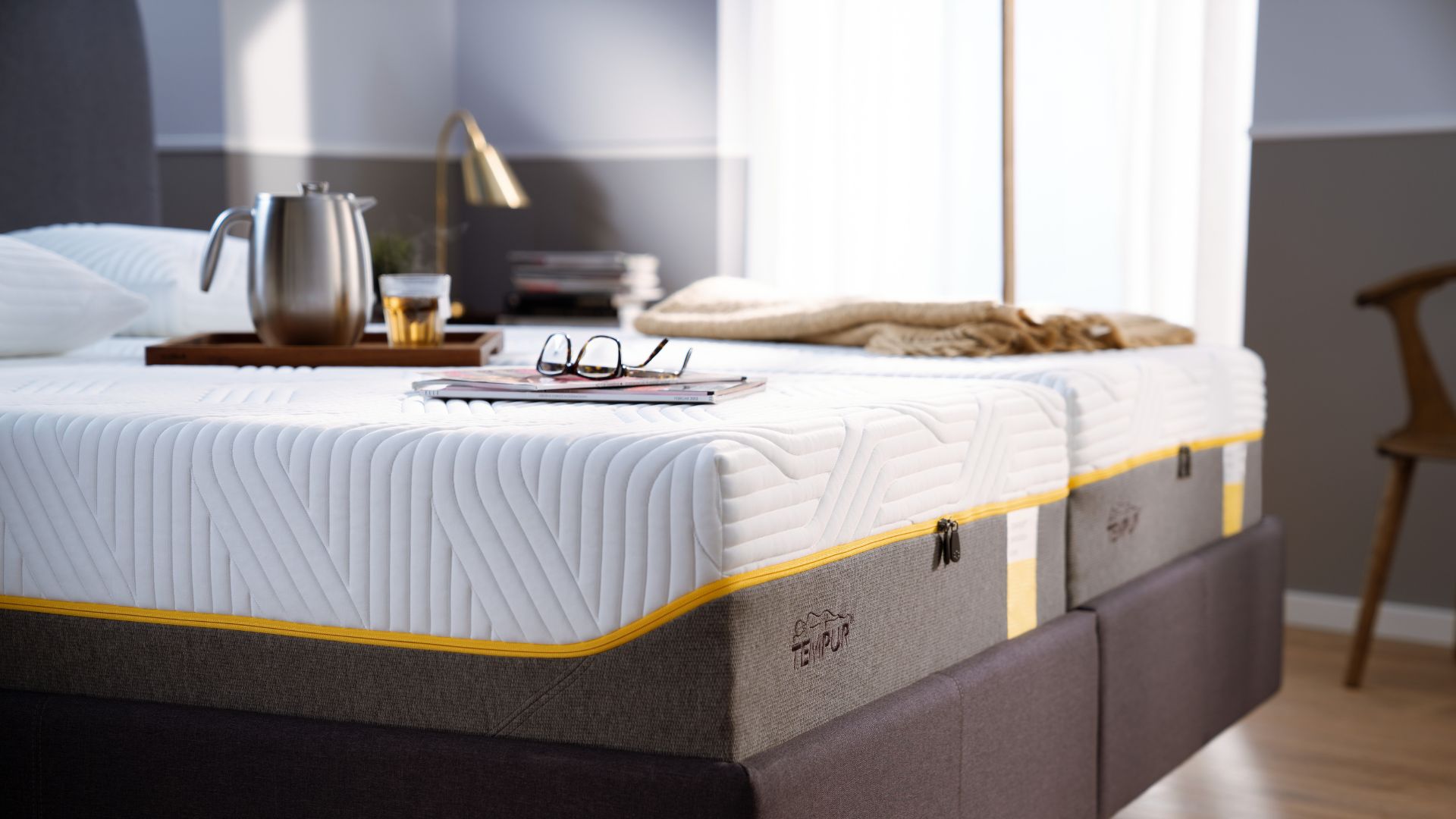5 things you need to help improve your sleep quality
We all know sleep is an essential part of our routines, but are you doing it right?

Eating healthily where possible, exercising regularly, and reducing stress are three pillars of wellness, but sleep is the important fourth. It doesn’t just keep us alert for the day, getting enough good quality sleep has links to many health benefits. This includes a better functioning immune and circulatory system, improved brain health, better weight management, and so much more.
However, in recent years the amount of good sleep we’re getting has gradually decreased, with many of us now struggling to achieve the recommended eight hours of sleep a night.
So, what does it take to get good quality sleep? How well we sleep can be measured by four factors, the Sleep Foundation says: how efficient our sleep is (i.e. how much time we spend in bed versus how much time we spend asleep), how long it takes for us to get to sleep, how long we’re asleep for, and how quickly we wake up after falling asleep. By improving each of these, we can improve how well we sleep. Here, we reveal how to improve your sleep quality in five simple steps.
Quiz: Discover your sleep personality
How to improve your sleep quality
1. Focus on your sleep environment
Firstly, create a better space to sleep in – otherwise known as improving your sleep environment. If your bedroom is a comforting place to go, you’re more likely to want to head to bed earlier and switch out the lights.
This means making sure that the temperature is suitable for you (65 degrees Fahrenheit is recommended by the Sleep Foundation), there’s no loud noise or bright light coming in from the world, and your furniture is arranged just the way you want it. Whatever your sleep personality – be it early bird or night owl, creating a calming space to relax in will help to optimise your sleep.
2. Invest in a great mattress
Naturally, the type and quality of mattress you have is going to play one of the most significant roles in improving how well you sleep. But, just as we all sleep differently, mattress preferences differ from person to person. That’s why it’s important to invest in a great mattress from a reputable retailer like TEMPUR® to suit your personal needs and offer you a range of supports – such as the TEMPUR ONE mattress, available in soft, medium and firm.
Each mattress is made with TEMPUR® Material, a specially-designed viscoelastic memory foam mattress that fits your body’s temperature, weight, and shape to offer a better sleeping environment and a truly restful slumber every time. And if it's time to upgrade your bed bases too, then take time to consider whether you want a traditional bed frame, a divan, or an ottoman style, which lifts up so you can stow away items and keep your bedroom feeling extra zen.

3. Buy new pillows
Where you lay your head matters too, so if you’re struggling to get good quality sleep at the moment and you’ve had your pillow for between one and two years, consider replacing it with one designed for you and how you sleep.
TEMPUR® offers a range of pillows designed for all sleeping positions, whether you lie down on your side or gaze at imaginary stars on the ceiling. You’ll only have to decide on the feel you want. Opt for the Traditional pillow and you’ll have a firmer, rectangular support for your head and neck as you sleep, while the Comfort Pillow Cloud shapes itself around you and cradles your head. Right down to the super-soft Down Deluxe Pillow, each pillow offers a different firmness level.
4. Understand your sleep chronotype
Your natural inclination to sleep at a certain time is known as your sleep chronotype, the Sleep Foundation explains. While many of us wish we could be one over the other, research suggests we can’t change it ourselves (although it can shift with age) as it’s all based on genetics, so it’s best we just understand it and learn how to make it work for us.
Understanding your sleep chronotype can have a big impact on your sleep quality, as so-called ‘early birds’ will need to head to bed earlier in the evening to achieve the best sleep for them and wake up earlier in the morning as a result. The later ‘night owls’ are likely to head to bed around 1 am and sleep in through the morning.
5. Get to grips with your circadian rhythm
Finally, while we’re on the subject of sleep chronotypes, it’s worth understanding your circadian rhythm since the two are so closely linked. The main difference is a key point for those looking to improve their sleep quality: you can alter your circadian rhythm by training it, unlike your sleep chronotype.
Your circadian rhythm is the body’s internal body clock - a day-to-day sleep and wake cycle controlled by releases of melatonin from the pineal gland in response to environmental changes like light and temperature.
You can train your circadian rhythm as a night owl to wake you up at 7 am every morning but your sleep chronotype will determine how productive you are, with the natural late risers less likely to be productive earlier in the day and early risers less likely to be productive later in the day.
Using personal knowledge of the two, you can better understand the best time for you to go to sleep and wake up every day and, where possible, move your life around this for better quality sleep.
Sign up for the woman&home newsletter
Sign up to our free daily email for the latest royal and entertainment news, interesting opinion, expert advice on styling and beauty trends, and no-nonsense guides to the health and wellness questions you want answered.
-
 Head to Hobbs for holiday-ready linen and the most elegant summer dresses you’ll find on the high street
Head to Hobbs for holiday-ready linen and the most elegant summer dresses you’ll find on the high streetWondering where to shop for a chic summer wardrobe? Hobbs has you covered
By Caroline Parr
-
 Forget beach bags and sunnies, Jasmine Harman's ravishing red swimsuit was elevated by matchy-matchy lipstick
Forget beach bags and sunnies, Jasmine Harman's ravishing red swimsuit was elevated by matchy-matchy lipstickIf I want to make even the simplest outfit look a bit more polished, colour coordination becomes my style best friend.
By Emma Shacklock